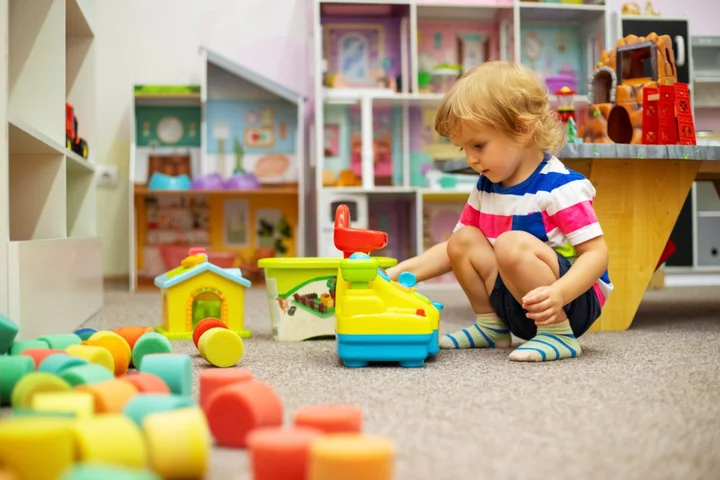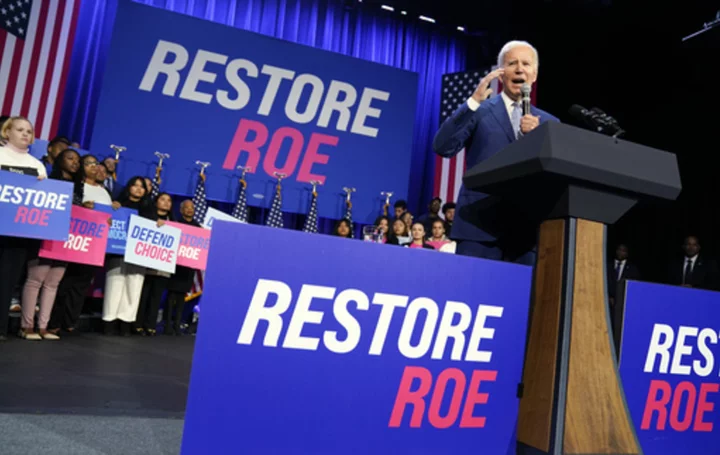Childcare costs have gone up by 220% in the US since 1990, new report finds
Views: 5013
2023-06-16 01:30
A new report has found that the price of childcare is still rising in the United States and has gone up by 220 per cent since 1990. In the annual report from Annie E. Casey Foundation, the charitable organisation examined the importance of childcare across the country, with data from each state about the overall well-being of children. With an analysis from Child Care Aware, an advocacy organisation, the report found that “child care costs have risen 220 per cent since” 1990, “significantly outpacing inflation”. As noted by the US Inflation Calculator, the cumulative rate of inflation, from January 1990 to May 2023, is approximately 138 per cent . The Annie E. Casey Foundation also looked at the annual cost of childcare and how it can impact parents’ income. More specifically, the average yearly cost for care for one child in America was $10,600 in 2021, which is “more than a third of a single parent’s income”. The report looked at the annual cost for a centre-based childcare for a toddler, based on each state. Results showed that prices are the highest in Washington DC, with a cost of $24,396 per year. Centre-based childcare in Connecticut is also expensive, with an annual price of $18,156 per year. The report said over 2 million children in the US had family members who experienced job changes due to childcare prices from 2020 to 2021. The organisation examined the ethnicity of these 2 million children: 17 per cent of them were Black, 16 per cent Latino, and 14 per cent Asian and Pacific Islanders. The organisation also looked at the analysis of 2017 data, which showed how the childcare system disproportionately impacted families of colour. For example, centre-based childcare for two children absorbed 26 per cent of a working mother’s median household income. Meanwhile, 42 per cent of a Latino working mother’s median household income paid for two children’s childcare, while 56 per cent of a Black working mother’s income covered this childcare cost. On the economic well-being of children around the country, findings showed that over 12 million were in poverty in 2021. That same year, there were over 21 million children whose parents lacked secure employment, and nearly 22 million children living in a household with high housing cost burden. Earlier this year, a report by the US Department of Labor also found that families with younger children in the country pay a significant amount on childcare. After looking at data from 2018, which was adjusted based on the inflation rate in 2022, the report noted that “childcare prices range from $4,810 for school-age home-based care in small counties to $15,417 for infant centre-based care in very large counties”. Read More Thirty, flirty and declining: How 30 became a terrifying milestone for an anxious generation More help with childcare costs for families on Universal Credit from end of June Government’s childcare reforms ‘risk worsening outcomes’ for poorer children

A new report has found that the price of childcare is still rising in the United States and has gone up by 220 per cent since 1990.
In the annual report from Annie E. Casey Foundation, the charitable organisation examined the importance of childcare across the country, with data from each state about the overall well-being of children.
With an analysis from Child Care Aware, an advocacy organisation, the report found that “child care costs have risen 220 per cent since” 1990, “significantly outpacing inflation”. As noted by the US Inflation Calculator, the cumulative rate of inflation, from January 1990 to May 2023, is approximately 138 per cent .
The Annie E. Casey Foundation also looked at the annual cost of childcare and how it can impact parents’ income. More specifically, the average yearly cost for care for one child in America was $10,600 in 2021, which is “more than a third of a single parent’s income”.
The report looked at the annual cost for a centre-based childcare for a toddler, based on each state. Results showed that prices are the highest in Washington DC, with a cost of $24,396 per year. Centre-based childcare in Connecticut is also expensive, with an annual price of $18,156 per year.
The report said over 2 million children in the US had family members who experienced job changes due to childcare prices from 2020 to 2021. The organisation examined the ethnicity of these 2 million children: 17 per cent of them were Black, 16 per cent Latino, and 14 per cent Asian and Pacific Islanders.
The organisation also looked at the analysis of 2017 data, which showed how the childcare system disproportionately impacted families of colour. For example, centre-based childcare for two children absorbed 26 per cent of a working mother’s median household income. Meanwhile, 42 per cent of a Latino working mother’s median household income paid for two children’s childcare, while 56 per cent of a Black working mother’s income covered this childcare cost.
On the economic well-being of children around the country, findings showed that over 12 million were in poverty in 2021. That same year, there were over 21 million children whose parents lacked secure employment, and nearly 22 million children living in a household with high housing cost burden.
Earlier this year, a report by the US Department of Labor also found that families with younger children in the country pay a significant amount on childcare.
After looking at data from 2018, which was adjusted based on the inflation rate in 2022, the report noted that “childcare prices range from $4,810 for school-age home-based care in small counties to $15,417 for infant centre-based care in very large counties”.
Read More
Thirty, flirty and declining: How 30 became a terrifying milestone for an anxious generation
More help with childcare costs for families on Universal Credit from end of June
Government’s childcare reforms ‘risk worsening outcomes’ for poorer children









